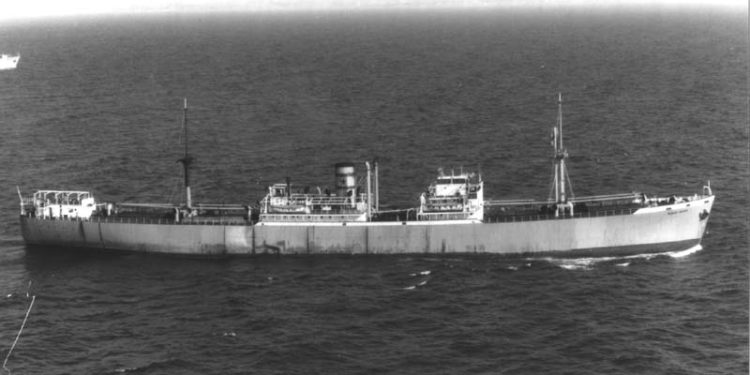Revive Black Star Line to stabilise depreciating cedi – GIFF
The Ghana Institute of Freight Forwarders is calling for the reintroduction of the nation’s defunct national shipping line, the Black Star Line.
The reintroduction of national shipping line, the institute argues will help bring competition amongst the various shipping lines while helping to address the issue of the depreciating cedi due to significant funds that are repatriated out of the country by the international liners.
Speaking in an interview, to a member of the Ghana Institute of Freight Forwarders Communication Team, Jacob Agyeman, said the government ought to prioritise bringing back the national shipping line in the interest of the local currency.
“Now we have AfCFTA, we can even take advantage of that. The government sets up Black Star line, then at least the transhipment cargoes will be transported by Black Star Line. The advantage here is you create employment for your people. You can even help stabilize this cedi that we are complaining about because most of these multinationals cause capital flight as at the end of the day they send their monies out of the country. If the Black Star line is here, the money stays here because if it makes $1,000,000 or $2,000,000, a chunk of it stays here. It stabilizes the Cedi against the dollar.”
He added that the commencement of the operations of Black Star Liine will also create jobs while regulating the sector.
“I’m sure they may have policies in place, but the implementation is the issue. We must begin to see practicals, they must set it up, and it must work. And I believe this is the best moment for us to revive Black Star lines, create employment for your people, stabilize your cedi, and then create competition so that your people will get quality service. There’s no competition.”
Ghana has not had a shipping line since the early 90’s when its Black Star Line folded up after some challenges with operating the entity.
There have been many calls from various stakeholders for a national shipping line across successive governments, but not much has been done yet.
Read: Lands Ministry engages Otumfour on $850m Newmont Ahafo-North Project
Cedi ends Q1 2022 with 18.21% depreciation rate to the dollar
The cedi, according to Bloomberg, ended the first quarter of 2022 with a depreciation rate of 18.21% rate to the US dollar.
The local currency depreciation rate, Bloomberg asserts, still makes it one of the African currencies with the worst spot returns.
The cedi came under severe pressure, particularly in the months of February 2022 and early March 2022. This was largely as a result of immense demand for the US dollar, as investors seek for dollar denominated assets, due to unfavorable ratings of Ghana’s economic outlook by rating agencies, Fitch and Moody’s.
And despite the country benefiting immensely from the high price of crude oil on the international market and to some extent the favorable price of gold, the cedi has not fared well so far this year.
Also government had faced stiff opposition in getting some revenue bills, particularly the Electronic Transaction Levy, from getting passed. Similarly, investors wanted some reassurance by government that it was committed to narrowing the fiscal deficit, whilst reducing arrears and the rising debt.
Currencies with worst spot returns at end Q1 2022
| RANKING | CURRENCY | YEAR-TO-DATE |
| 16th | New Sudanese pound | -2.08% |
| 17th | Ethiopian Birr | -3.89% |
| 18th | Liberian dollar | -4.94% |
| 19th | Sierra Leone leone | -5.10% |
| 20th | Mauritian rupee | -7.05% |
| 21st | Zambian kwacha | -8.02% |
| 22nd | Egypt pound | -14.27% |
| 23rd | Ghana cedi | -18.21% |









